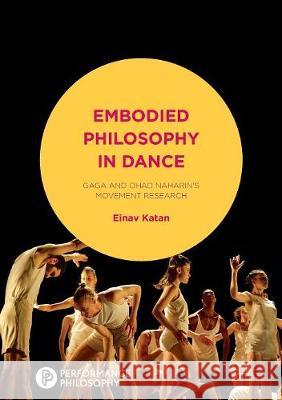Embodied Philosophy in Dance: Gaga and Ohad Naharin's Movement Research » książka
topmenu
Embodied Philosophy in Dance: Gaga and Ohad Naharin's Movement Research
ISBN-13: 9781349956296 / Angielski / Miękka / 2018 / 228 str.
Kategorie:
Kategorie BISAC:
Wydawca:
Palgrave MacMillan
Seria wydawnicza:
Język:
Angielski
ISBN-13:
9781349956296
Rok wydania:
2018
Wydanie:
Softcover Repri
Ilość stron:
228
Waga:
0.30 kg
Wymiary:
21.01 x 14.81 x 1.32
Oprawa:
Miękka
Wolumenów:
01
Dodatkowe informacje:
Wydanie ilustrowane











